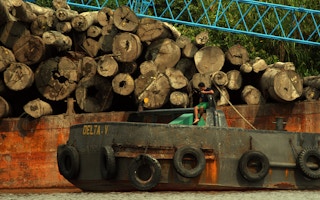From drug traffickers laundering money through dubious land purchases to miners illegally panning for gold, environmental crime is thriving in the Amazon and the question of what to do about it will be high on the agenda at the COP28 talks in Dubai.
For the first time, the global law enforcement community will gather at the UN climate conference, which starts on Thursday and runs until Dec. 12, to discuss how to combat the rise of illegal activities that threaten both people and planet.
The law enforcement meeting, dubbed “a historic collaboration”, is organised by the International Initiative of Law Enforcement for Climate (I2LEC), a joint initiative between the Ministry of Interior of the United Arab Emirates and the UN Office on Drugs and Crime (UNODC).
In recent years, the Amazon has become a drug-trafficking thoroughfare with illicit cargo easily passing through the vast, sparsely populated and thinly policed region.
Organised crime gangs also launder money through land grabs, illegal mining, logging and other activities, endangering one of the world’s most critical and fragile ecosystems.
Protecting the world’s largest rainforest is seen as crucial in the fight against climate change because it absorbs vast amounts of the fossil fuel emissions that drive global warming.
Here’s what you need to know about environmental crime in the Amazon and efforts to combat it:
How big a problem is organised crime in the Amazon?
Organised crime groups involved in drug trafficking and production, illegal logging and mining, and land grabbing are a growing problem in the Amazon and affect the eight countries and one French territory that span the Amazon basin.
A 2018 assessment, co-authored by Interpol, found that environmental crime was the world’s third most lucrative criminal business, surpassed only by drug trafficking and smuggling.
A 2023 UNODC report said “significant parts of the Amazon Basin are wracked by a complex ecosystem of drug crime (and) crime that affects the environment,” with illicit activities often happening near Indigenous groups living in the rainforest.
Criminal organisations include a myriad of different groups, from international drug cartels to local crime gangs.








